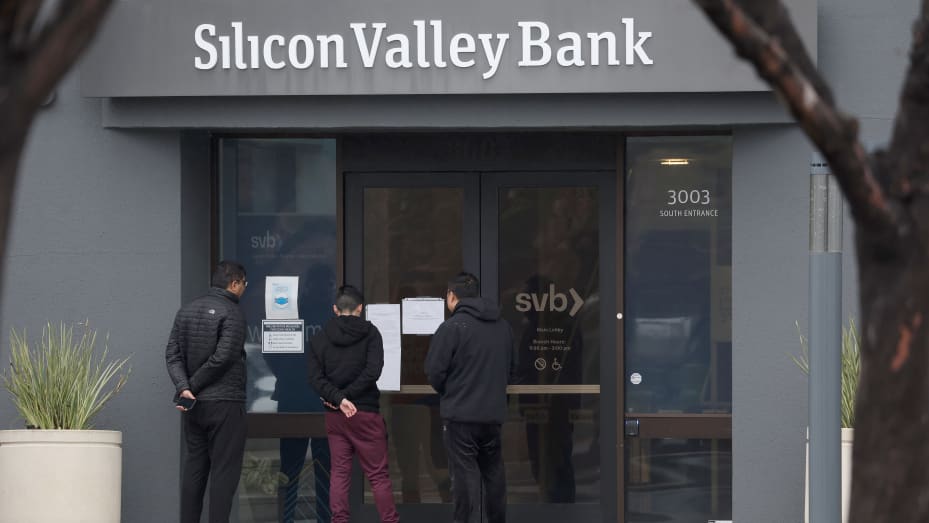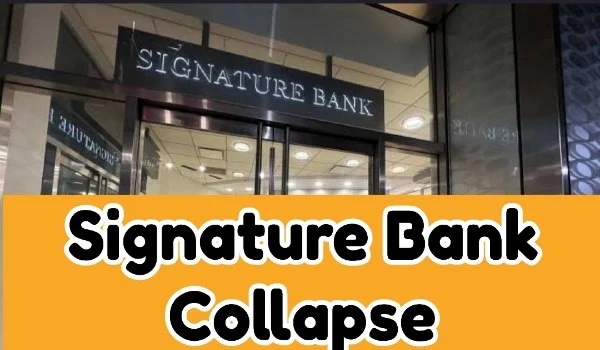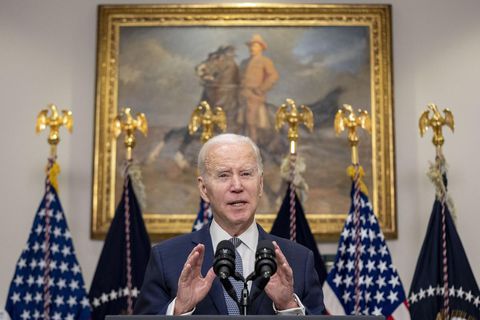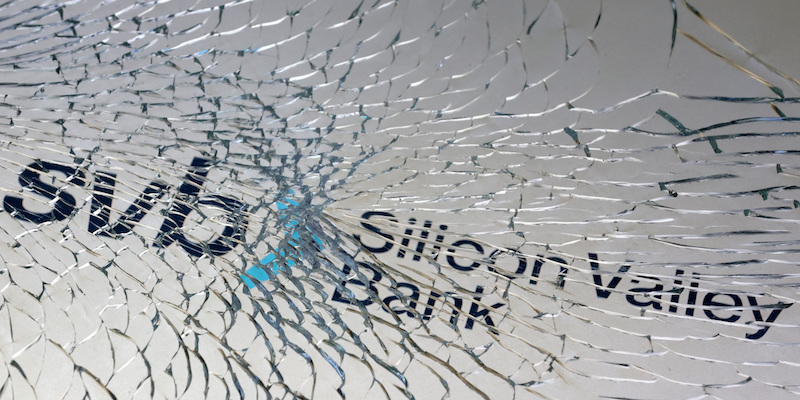Silicon Valley Bank Stirs Financial Fears
The collapse of Silicon Valley Bank has made investors skittish and regulators fearful this could be the beginning of more to come.
Finance :
Late last week, Silicon Valley Bank collapsed, forcing California regulators to close the bank and place the Federal Deposit Insurance Corporation (FDIC) in charge of its assets. Now, in case you’ve never heard of Silicon Valley Bank it was America’s 16th largest lender. It held billions of dollars from some of the nation’s largest and most prominent tech companies (including Roku and Etsy), and its failure was the largest bank collapse since the global financial crisis of 2008.

According to The New York Times, the failure was caused by bank executives making several bad investments with their clients’ funds, then selling off their own stock in SVB when they realized the bank was headed for trouble. Once this happened, investors realized their money was in jeopardy and began closing accounts and pulling millions of dollars in cash out all at once, effectively causing the financial institution to implode.
The collapse was so critical to the American economy that national officials were forced to step in just to prevent a domino effect of failures.
On Monday, the Federal Reserve announced plans for a “thorough, transparent, and swift” review of the bank and acknowledged that it could have done better. Additionally, President Biden promised a “full accounting of what happened,” vowed that everyone would get their money back, and said he would ask banking regulators to tighten rules on the sector.
However, all of their proposed efforts came too late for customers of Signature Bank, which also met its demise on Sunday and immediately shut down under similar circumstances as Silicon Valley Bank.

So, what’s going on with banks and exactly what are they doing with all our money?
The failures have “exposed the inadequacy of regulatory reforms that have been made since the global financial crisis,” said law professor Arthur Wilmarth at George Washington University.
Wilmarth noted that SVB seemingly grew too fast between 2020 and 2022 and its exposure to long-date fixed interest bonds made it especially vulnerable to a shift in monetary policy by the Fed.
“That’s almost a sure-proof formula for failure. If the economy turns you begin to have trouble,” Wilmarth added.

Michael Ohlrogge, an associate professor of law at New York University, said regulators as a matter of course assign “very little to zero-risk weight” in terms of bank capital requirements for Treasury-linked securities because they are considered safe.
“That’s probably going to warrant revisiting and thinking more seriously about the run risk of uninsured deposits,” Ohlrogge said. Or, in other words, the laws surrounding banks and their executives need to be changed in order to prevent other banks from going under in the future.
So, here’s the million-dollar question: Are banks legitimately safe anymore? Or, are we all better off buying gold bars or perhaps storing cash inside our mattresses?
OK WASSUP! discusses Financial News:
Silicon Valley Bank could be just the beginning.







Thanks DJ for covering this topic! I was hoping you would.
Let me start with this. No I do not believe banks are “legitimately safer anymore.” Too much rampant corruption. Too much greed.
Many, if not most, politicians (in both parties) are in the pockets of corporations, big business and war profiteers and gun manufacturers. And worst of all – there’s no accountability. No price to be paid for incompetent and criminal actions.
None.
I also want to add…..
One of my biggest disappointments in Pres. Obama is his administration’s refusal to prosecute the “big dawgs” on Wall Street that basically orchestrated the massive Collapse of mortgage, financial and banking industries in 2008. A few tiny dogs paid the price.
That’s about it.
The Hill:
President Biden is facing strong pushback from Republicans challenging his claim that U.S. taxpayers won’t foot the bill for rescuing wealthy investors who deposited their money in Silicon Valley Bank, which federal regulators now control.
GOP senators argue the banks around the country that pay into the Federal Deposit Insurance Corporation (FDIC), which will cover depositors’ losses, are also U.S. taxpayers and that higher bank fees are likely to be passed down to consumers.
They also have questions about the creation of a new lending facility the Federal Reserve announced on Sunday to provide other banks with liquidity if depositors begin to demand their money back en masse as they did at Silicon Valley Bank.
The Fed’s new Bank Term Funding Program will be backed up by $25 billion the Treasury Department will make available from the Exchange Stabilization Fund, which Congress relied on to keep financial markets from freezing at the onset of the COVID-19 pandemic.
I have to be honest these banks are starting to worry me. If a bank holding all that money for these tech companies could close anything is possible.
I know DJ was joking about the gold bars but we could be coming down to that real soon unless they fix things.
USA Today:
California-based Silicon Valley Bank and the New York-based Signature Bank, which had more than $200 billion and $110 billion in assets, respectively, both collapsed and were taken over by federal regulators.
Congress must repeal the Trump-era law, which was supported by both Republicans and Democrats, say advocates and some lawmakers.
“It’s a wake-up call,” Renita Marcellin, advocacy and legislative director for Americans for Financial Reform, a financial reform group in Washington, D.C., told USA TODAY. “Congress should be thinking and starting to figure out how to repeal this law.”